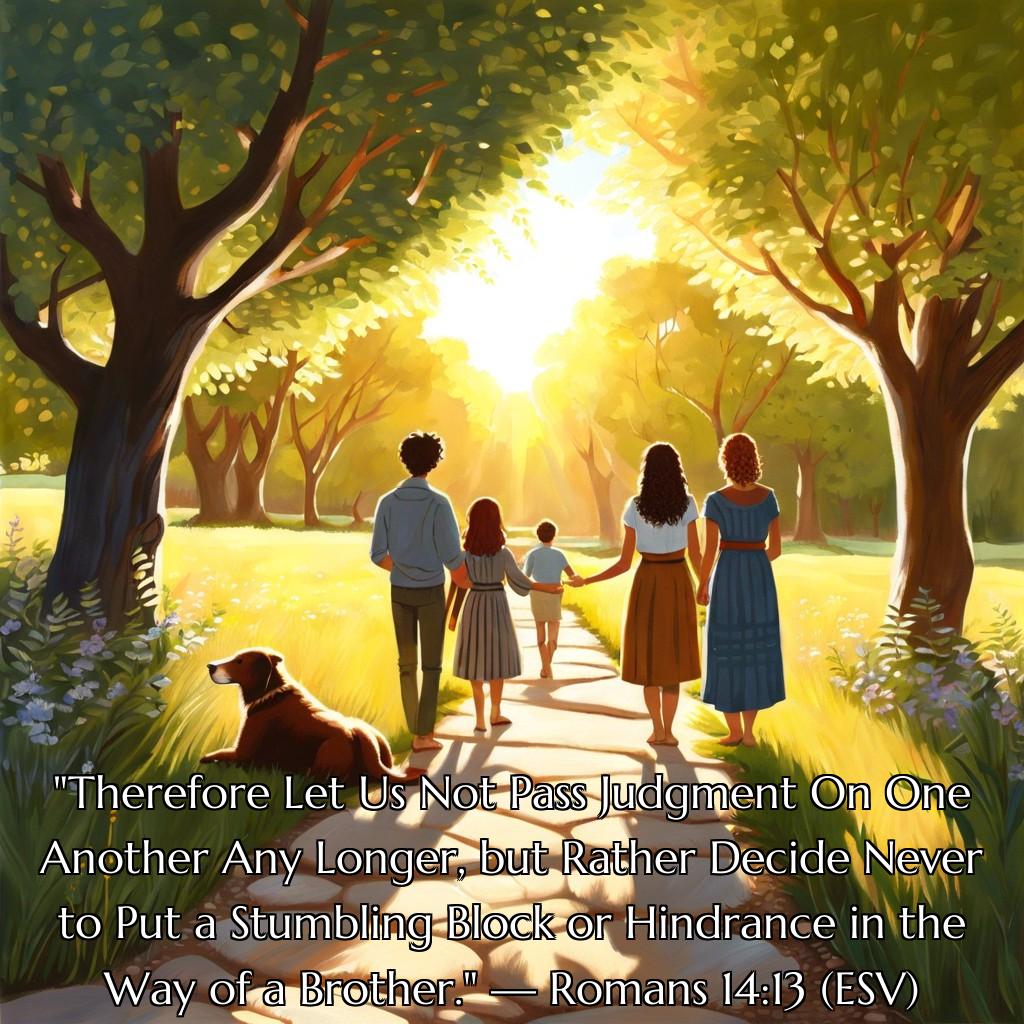This article explains the meaning of 10 Bible verses about light to help you understand their significance.
Light is a powerful and recurring metaphor throughout the Bible, representing divine truth, guidance, purity, and the presence of God. Whether you’re seeking inspiration, clarity, or a deeper understanding of God’s word, exploring these verses about light can illuminate your spiritual journey. Journey through these key scriptures to discover how God’s light can guide us through life’s darkest moments, offer eternal hope, and remind us of our mission to shine in the world.
Genesis 1:3 – “And God Said, ‘Let There Be Light,’ and There Was Light.”
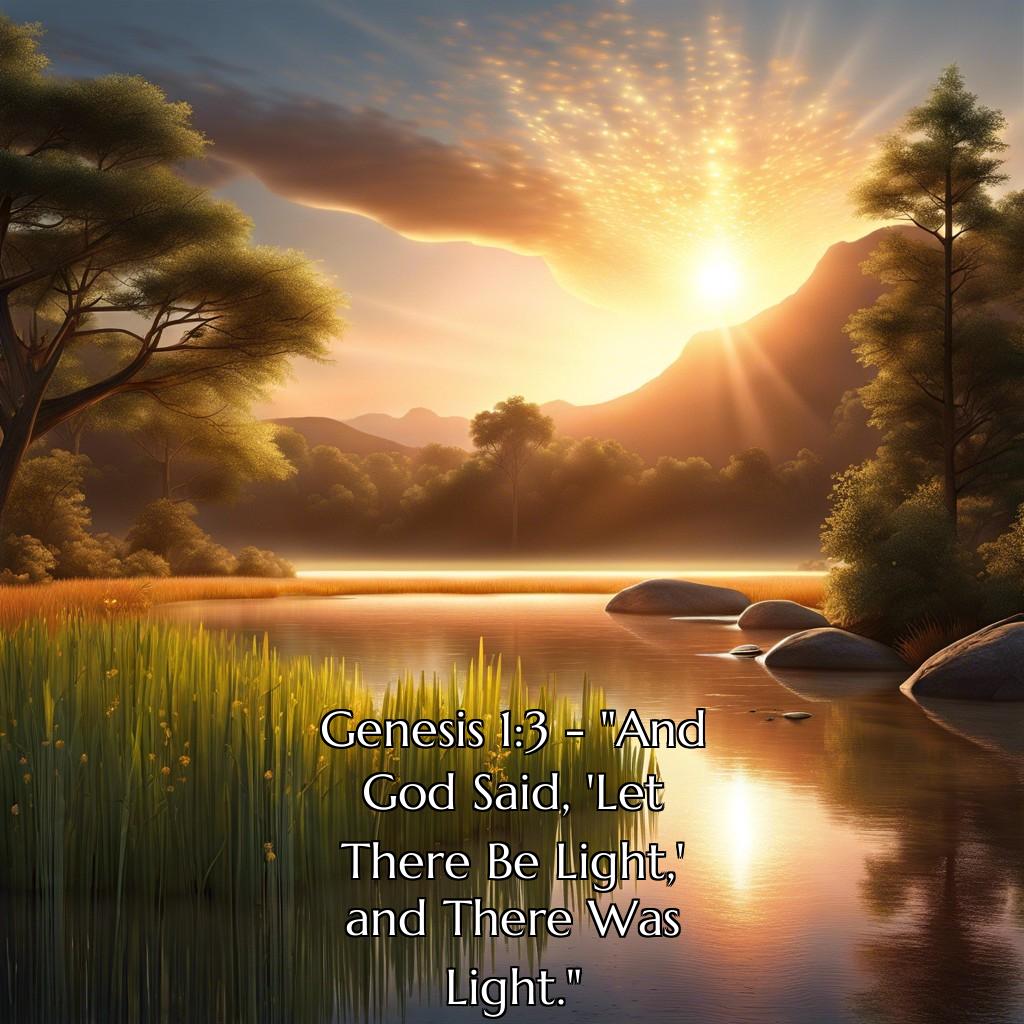
This verse marks the beginning of creation. God’s first act is to create light, symbolizing the dispelling of chaos and darkness. It’s an assertion of order over void and confusion.
Light signifies purity and life. It’s foundational, showing that God is the source of all energy and life. The divine command showcases His sovereignty–a simple word brings light into existence.
Spiritually, it represents enlightenment and wisdom. Light in this context can be seen as the opening act of God’s revelation to the world. We see it as an invitation to step out of darkness and into understanding.
Consider how light gives us clarity and guides us. It’s a powerful metaphor for God’s guidance in our lives. Just as physical light is essential for life, spiritual light is crucial for our souls.
John 8:12 – “When Jesus Spoke Again to the People, He Said, ‘I Am the Light of the World. Whoever Follows Me Will Never Walk in Darkness, but Will Have the Light of Life.'”
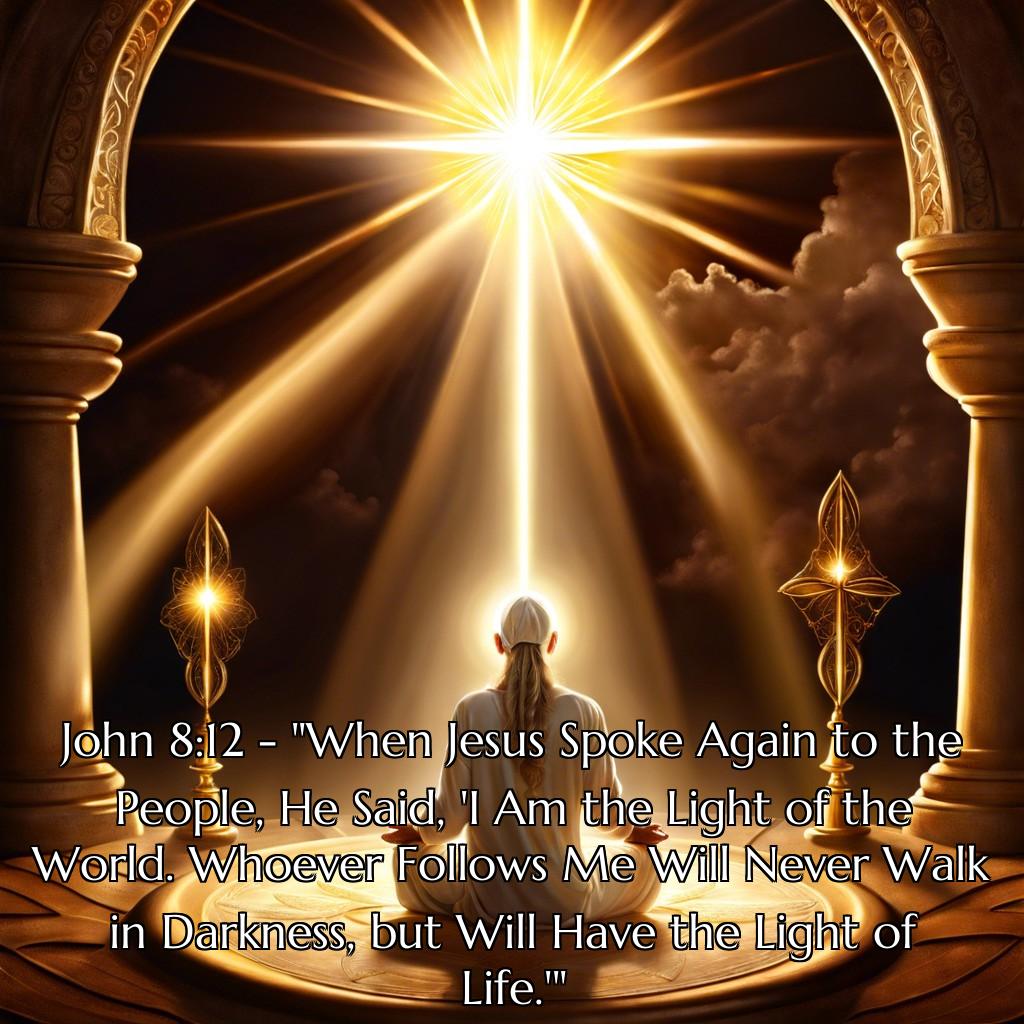
In this verse, Jesus declares Himself as the ultimate source of enlightenment and guidance. This proclamation highlights several core ideas:
Jesus as the guiding light: By following Him, individuals can navigate through life’s uncertainties and challenges, avoiding the pitfalls of moral and spiritual darkness.
Promise of eternal life: The phrase “light of life” emphasizes not just guidance in this world but also the promise of eternal life, illuminating the path to salvation.
Contrast between light and darkness: Jesus underscores the stark difference between following Him and not, equating a life without Him to walking in darkness, which symbolizes ignorance, sin, and despair.
Invitation to everyone: This message is inclusive, inviting all to follow Him and experience the transformation from darkness to light in their own lives.
Belief in action: To “follow” Jesus implies active engagement and commitment, not just passive belief. It’s about living in a way that continuously seeks His truth and aligns with His teachings.
Matthew 5:14 – “You Are the Light of the World. A Town Built On a Hill Cannot Be Hidden.”

This verse encourages believers to embody the virtues and teachings of Jesus, radiating positivity and righteousness.
Jesus likens his followers to a town on a hill, visible to all. This emphasizes the importance of living an authentic Christian life, demonstrating faith openly.
- Key aspects to consider:
- Visibility: Your actions and character should reflect your faith, making it evident to others.
- Influence: Like light, your positive actions and words can inspire and lead others.
- Responsibility: Being the light carries the duty to uphold Christian values and principles in all situations.
This metaphor serves as a call to be intentional in living out one’s faith conspicuously and with integrity.
1 John 1:5 – “This Is the Message We Have Heard From Him and Declare to You: God Is Light; in Him There Is No Darkness At All.”
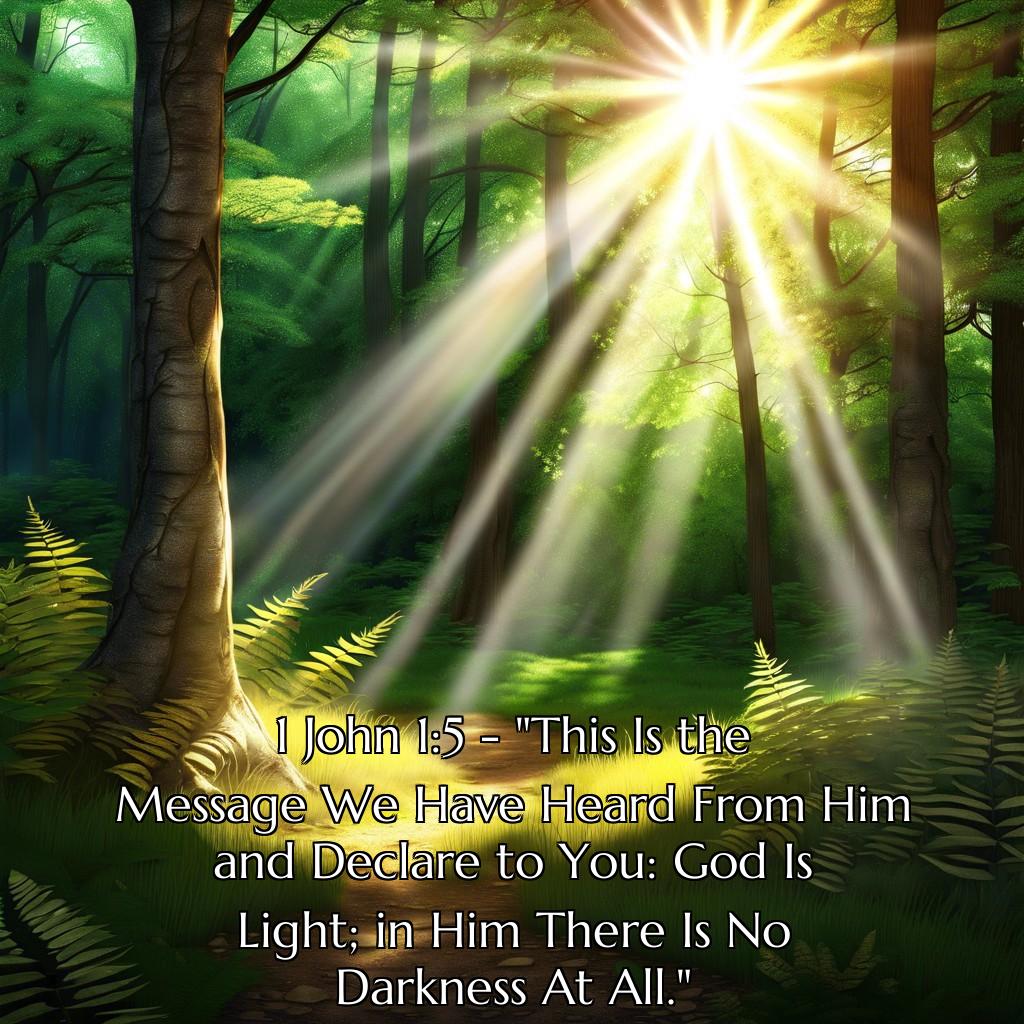
Light represents purity, holiness, and the absence of sin. In this verse, God is depicted as the essence of light, embodying complete purity and goodness. Darkness, by contrast, signifies sin and evil.
Here are some key points about this concept:
- God is inherently good and pure, with no trace of evil or sin.
- Light illuminates and reveals, just as God brings clarity and truth.
- Darkness cannot coexist with light; similarly, sin cannot dwell in God’s presence.
These points underscore the message that God’s nature is fundamentally different from the flawed nature of humanity. Embracing this understanding helps believers seek purity and strive to live in alignment with God’s will.
Psalm 119:105 – “Your Word Is a Lamp for My Feet, a Light On My Path.”
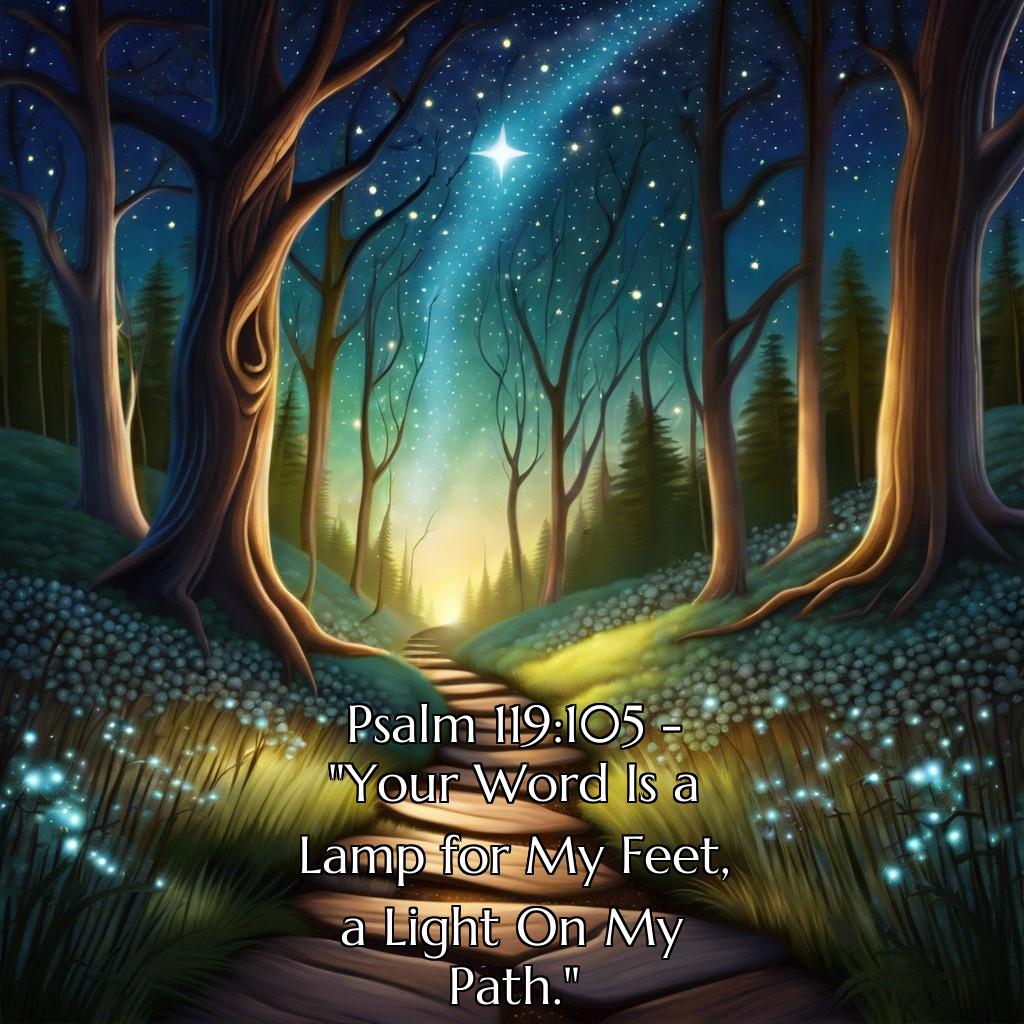
The imagery in this verse is powerful and comforting. Picture this: a traveler navigating through the darkness with only a lamp to guide their steps. God’s word serves as that lamp, illuminating the path in front of us. It’s practical and immediate, providing the light we need for each step we take.
When the psalmist says “a lamp for my feet,” they’re emphasizing guidance in everyday decisions. God’s word helps us make choices based on His wisdom.
“A light on my path” expands the vision. It points to God’s word offering insight into our life’s overall direction. It ensures we do not stumble and helps us see the bigger picture.
Here are a few ideas to consider:
- Daily reading of scripture can help us find clarity and direction.
- While the light might not reveal the whole journey, it shows enough to keep us moving forward safely.
- Reflecting on God’s word can bring comfort during uncertain times, acting as a reliable guide.
Ephesians 5:8 – “For You Were Once Darkness, but Now You Are Light in the Lord. Live As Children of Light.”
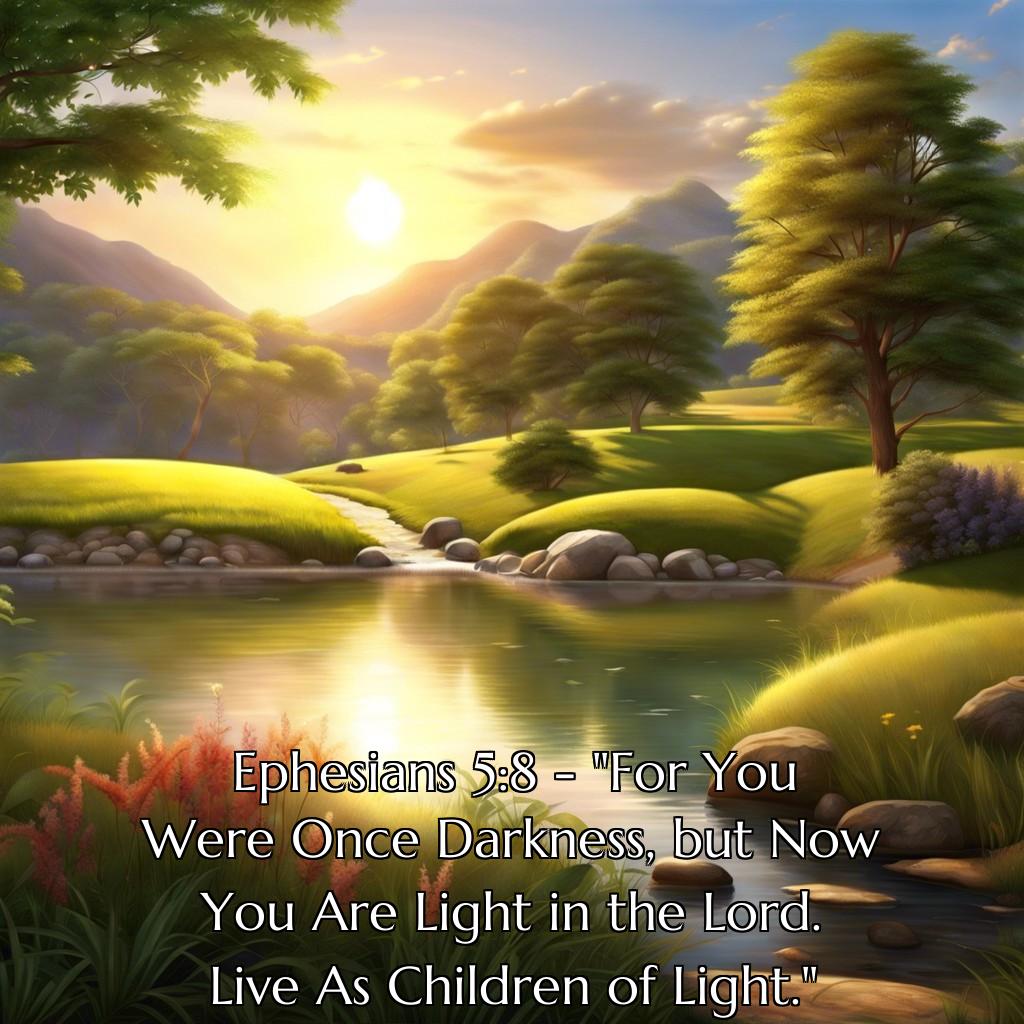
Paul’s letter to the Ephesians emphasizes transformation. He contrasts the past and present lives of believers. Once, they were in darkness, living without understanding or purpose. Now, they are “light in the Lord,” reflecting Christ’s illumination.
This verse calls for living authentically as children of light. To do this:
- Embrace truth. Abandon falsehood and live in honesty.
- Show kindness. Reflect God’s love in actions.
- Seek goodness. Engage in positive, uplifting activities.
- Paul encourages believers to leave behind their old ways and embody the virtues that come from following Christ. This transformation is profound and meant to be evident in everyday life.
2 Corinthians 4:6 – “For God, Who Said, ‘Let Light Shine Out of Darkness,’ Made His Light Shine in Our Hearts to Give Us the Light of the Knowledge of God’s Glory Displayed in the Face of Christ.”
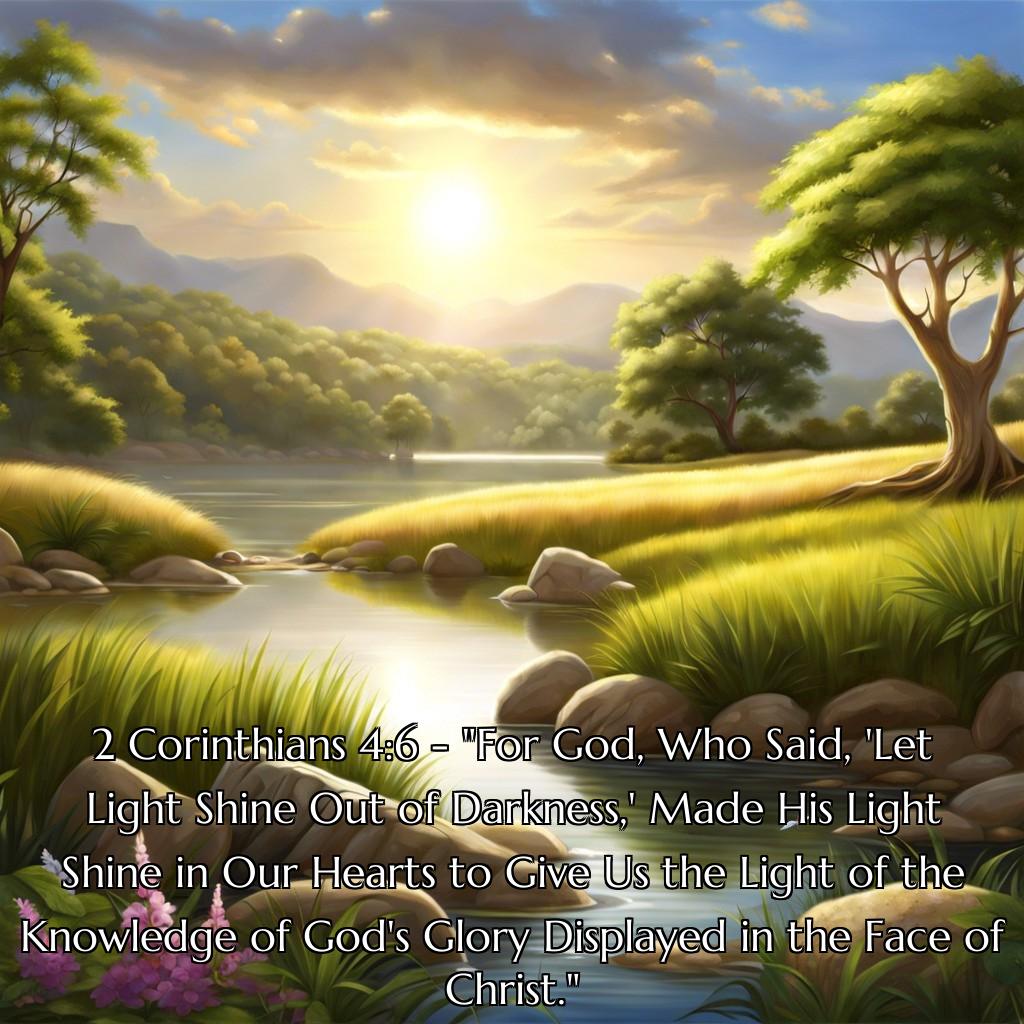
This verse highlights the transformative work of God in our lives. Here are some key concepts:
First, consider the phrase “Let light shine out of darkness.” This points back to creation, where God commands light to exist, symbolizing His power to bring forth illumination from obscurity.
Next, the light shining in our hearts signifies spiritual enlightenment. God’s light dispels the darkness of ignorance and sin, offering clarity and understanding.
The “knowledge of God’s glory” refers to recognizing His divine nature and majesty. Through Jesus Christ, we gain this profound insight, experiencing God’s splendor in a personal and relatable way.
Finally, God’s glory is displayed in the face of Christ. Jesus embodies God’s character and holiness, making the divine accessible and comprehensible to humanity. Our relationship with Christ can thus be seen as a continual unveiling of God’s light and truth in our lives.
Isaiah 60:1 – “Arise, Shine, for Your Light Has Come, and the Glory of the Lord Rises Upon You.”
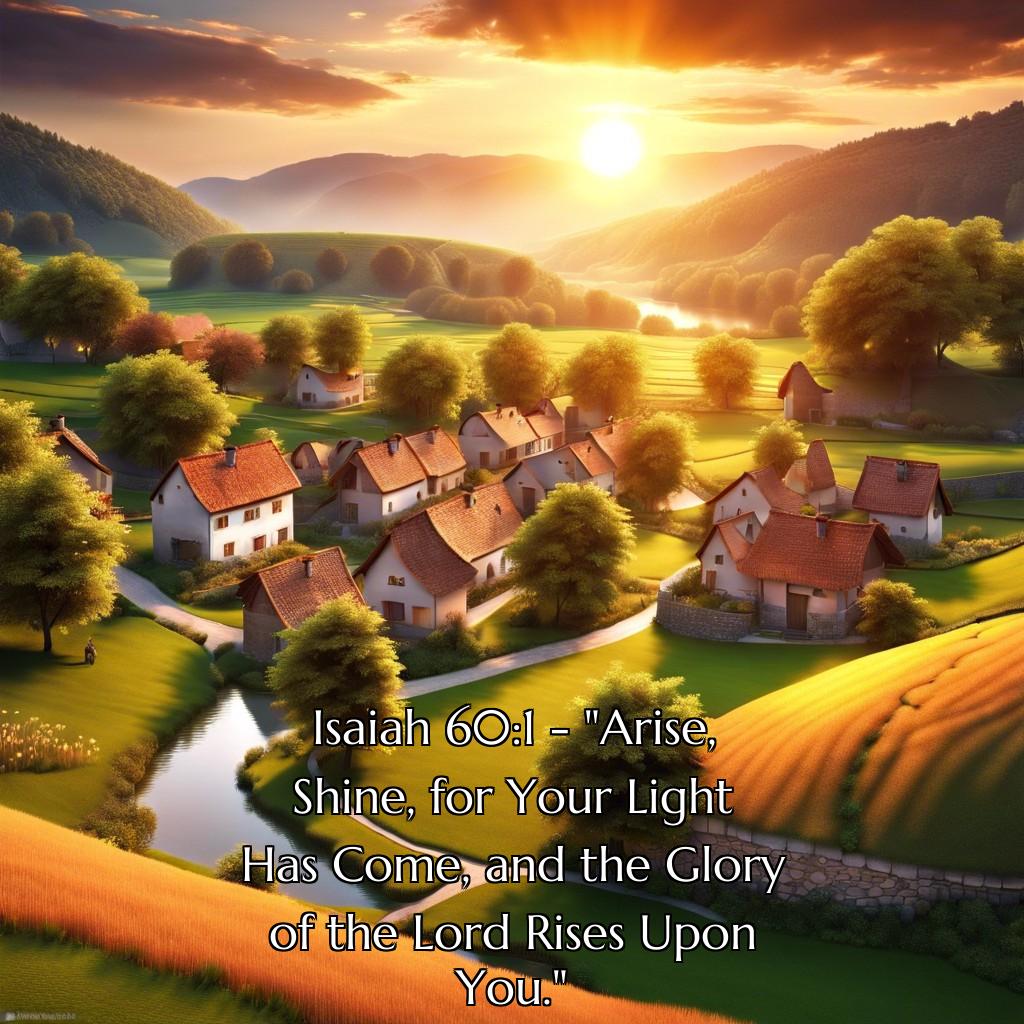
Isaiah calls for people to recognize the presence of God’s glory among them. This verse emphasizes several key points:
– Awakening to God’s Presence: Encourages individuals to rise and recognize God’s light within them, signifying a spiritual awakening.
– Reflecting God’s Glory: Implies that God’s glory is not only upon them but should also shine through them, making believers mirrors of divine light.
– Living with Purpose: Serves as a call to action, inspiring believers to live purposefully and fully engage with the world around them under God’s guidance.
The language here is both a promise and a call to exhibit and share the divine light in their lives.
John 1:5 – “The Light Shines in the Darkness, and the Darkness Has Not Overcome It.”

This verse highlights the triumph of light over darkness, symbolizing Christ’s victory over evil.
- Spiritual Light: Christ is often referred to as the Light, representing truth, goodness, and divine illumination.
- Overcoming Darkness: Darkness symbolizes sin, ignorance, and evil. The assurance here is that light, Christ’s truth and goodness, remains unconquered by any form of darkness.
- Enduring Hope: This provides hope to believers, emphasizing that despite challenges or evil forces, Christ’s light prevails.
In a world often filled with darkness, this passage reassures Christians of the enduring and prevailing presence of Christ’s light in their lives.
Psalm 27:1 – “The Lord Is My Light and My Salvation—whom Shall I Fear? The Lord Is the Stronghold of My Life—of Whom Shall I Be Afraid?”
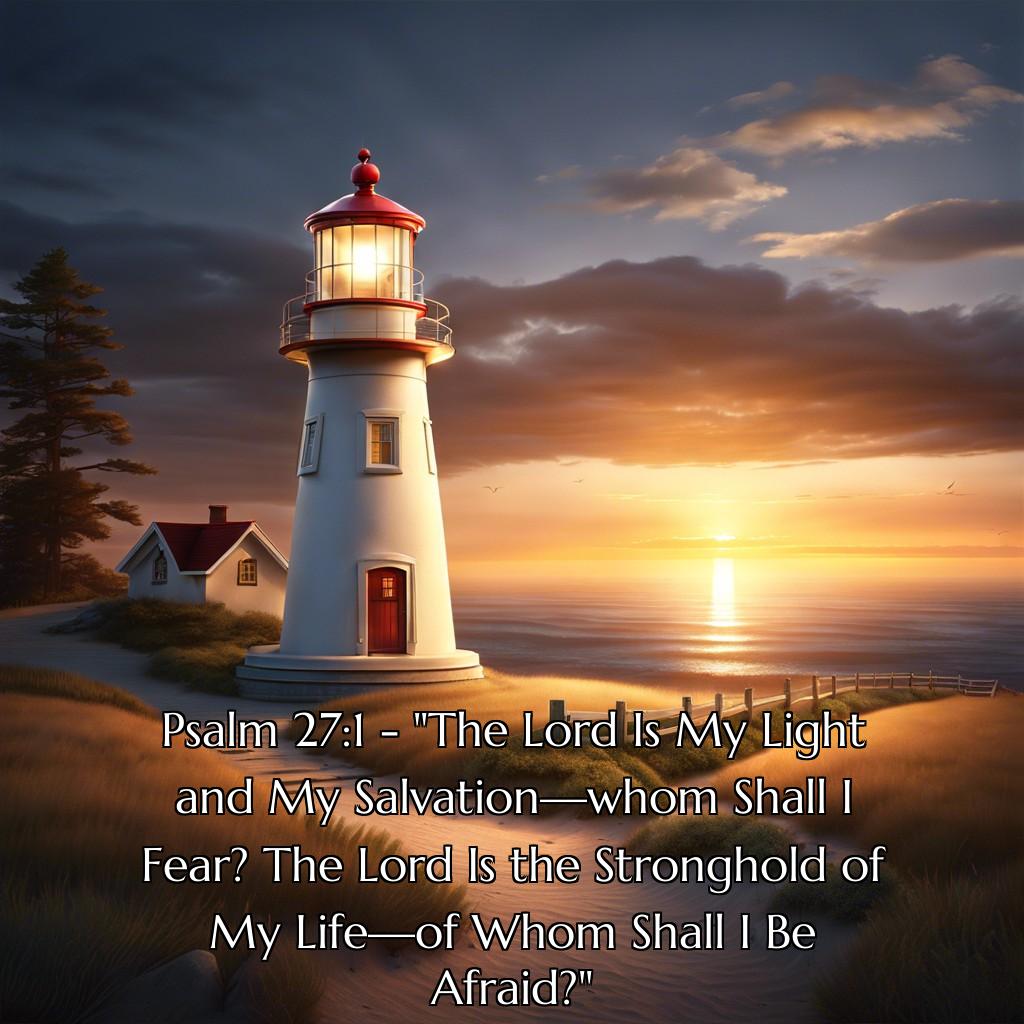
This verse is a profound declaration of trust and reliance on God. It speaks to God’s role as both a guiding light and a protective fortress in our lives. Understanding this verse can bring immense comfort and courage.
– Light and Salvation: God is portrayed as light, illuminating our path and dispelling fears. He provides clarity and direction in moments of uncertainty.
– Fearlessness: With God as our light, fear loses its grip. The assurance of His presence and salvation shields us from the anxieties and threats that come our way.
– Stronghold: Describing God as a stronghold emphasizes His role as our protector and refuge. It suggests a place of safety and strength, reinforcing our sense of security in Him.
– Personal Relationship: The use of “my light” and “my salvation” highlights a personal connection with God. It’s not just about what He does, but who He is to us personally.
Through this verse, we are reminded that with God by our side, we have nothing to fear.


